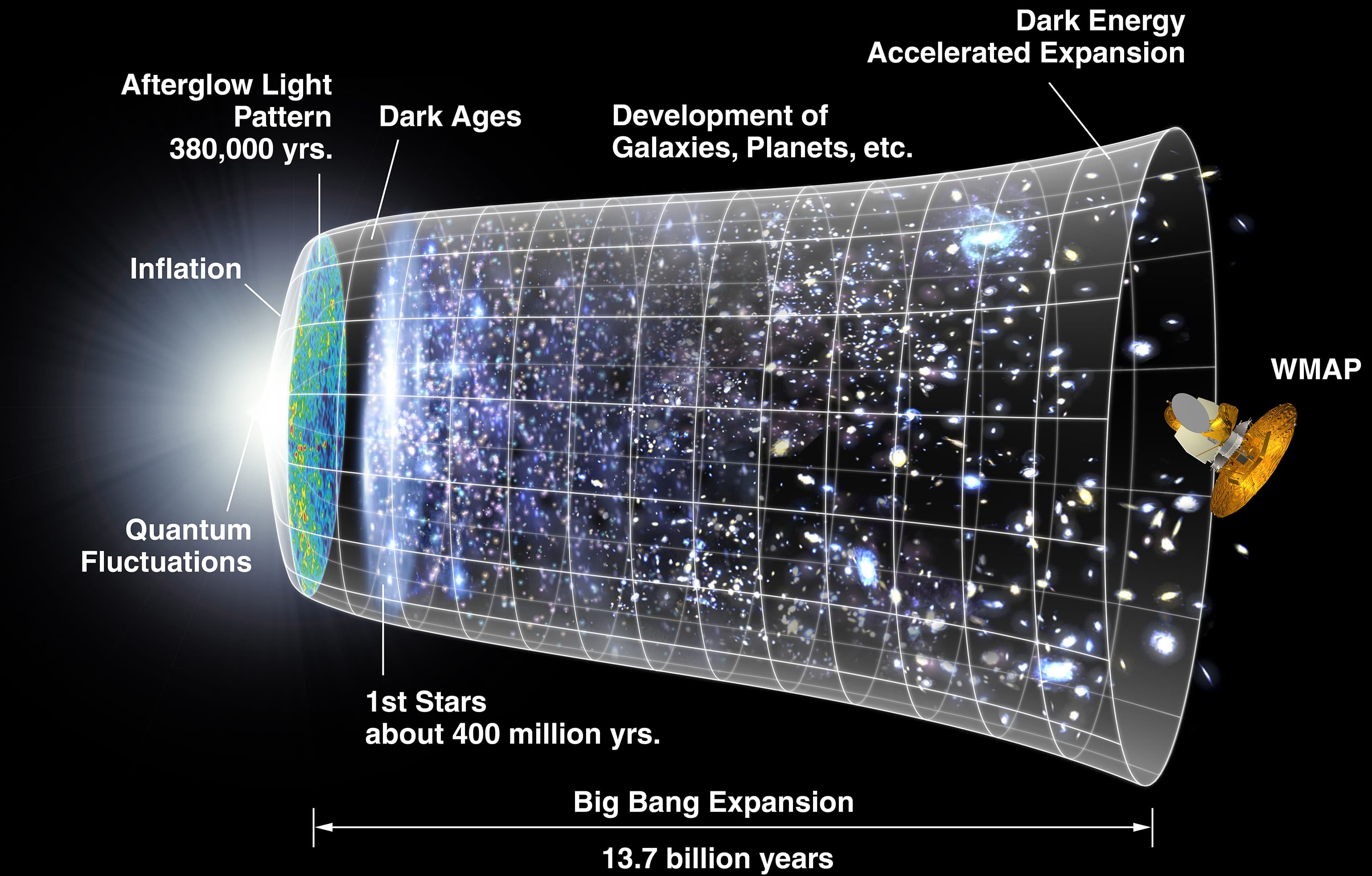On the 4th of February a paper was published detailing a Universe that didn’t need a Big Bang. While it is very interesting (you can read it here) I find myself once again at odds with how theoretical papers are formulated.
The paper details a mathematical robust way to solve many cosmological conundrums. The flatness problem (discussed in this vlog), the value of dark energy and the nature of dark matter. This model has an important feature, it gets rid of the initial singularity that we refer as the Big Bang. Singularities are a big issue and a hot topic in physics, because they are the frontiers where quantum mechanics and general relativity should work together but cannot. A singularity is a point (so small enough to be in the realm of quantum mechanics) but with infinite density (and that’s where general relativity kicks in). This is where our physics fail.
Many scientists have proposed models and ideas to explain or get rid of singularities. Singularities are so annoying that they are the first thing to go in unification models (models that unify relativity and quantum theories). Unfortunately, these models lack a very important feature for me: predictions. If a model can predict something we are yet to observe, or a feature that was not part of the original goal/assumption, then we are onto something with incredible potential.
This is not the case with this paper. Its value is limited to its own diminutive field because it doesn’t make predictions and it also fails to explain how the cosmic microwave background would form in a Universe without Big Bang.
Let me know what you think about it in the comments.

